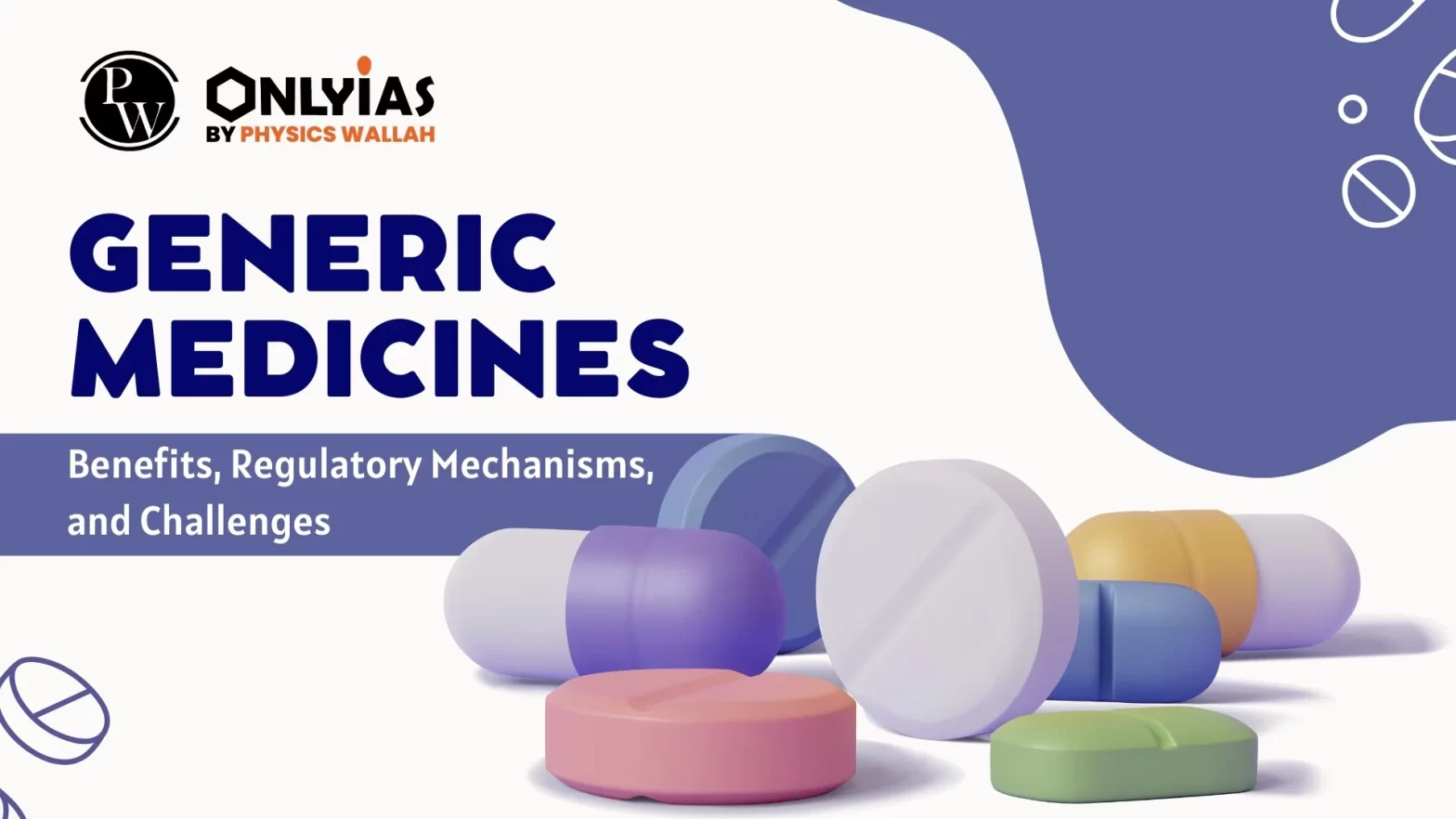Generic Medicines are generally more affordable than brand-name drugs, making healthcare more accessible and reducing expenses for patients and healthcare systems.

Questionnaire
Context: Recently, the Union government directed pharmaceutical companies to implement the revised Good Manufacturing Practices (GMP).
| Feature | Branded Drugs | Generic Medicines |
| Active Ingredient | Same active ingredient as the generic drug | Same active ingredient as the brand-name drug |
| Effectiveness | Must undergo rigorous clinical trials to prove effectiveness | Must demonstrate bioequivalence to the brand-name drug |
| Cost | More expensive than Generic Medicines | Less expensive than brand-name drugs |
| Patent Protection | Protected by patents for 20 years | Not protected by patents |
| Marketing | Heavily marketed by pharmaceutical companies | Not as heavily marketed as brand-name drugs |
| Availability | Available in limited quantities | Widely available |
| Must Read | |
| NCERT Notes For UPSC | UPSC Daily Current Affairs |
| UPSC Blogs | UPSC Daily Editorials |
| Daily Current Affairs Quiz | Daily Main Answer Writing |
| UPSC Mains Previous Year Papers | UPSC Test Series 2024 |

<div class="new-fform">
</div>